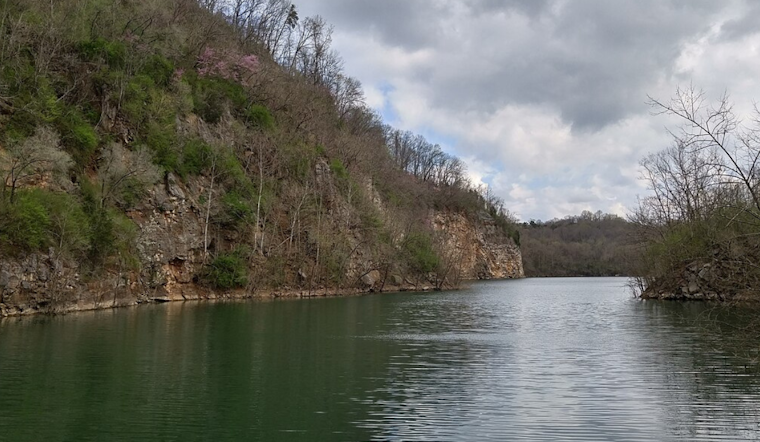
A health advisory has been posted at Mead's Quarry Lake warning visitors to steer clear of the water due to a potentially toxic algal bloom, according to the Ijams Nature Center. In a bid to protect public safety, the center announced that the advisory would remain in place until the bloom declines and microcystin levels subside. WATE reported on Thursday that the lake's pinkish tinge is due to Planktothrix rubescens, a type of cyanobacterium that produces the harmful microcystin.
Swimmers and pet owners are advised to avoid exposure to the lake's water, scum, foam, or algae, "Until the Health Advisory is lifted, people and pets should not swim, wade, or come into contact with water, and should seek medical attention if they or their family members are experiencing illness after swimming or playing in the water," WVLT informed its readers. The health advisory comes in the wake of tests conducted by a University of Tennessee class which discovered high levels of the toxic bloom.
Officials have highlighted that symptoms such as upset stomach, vomiting, and diarrhea could arise from contact with the contaminated water. Serious health consequences, such as liver or kidney damage, are possible from heavy exposure to microcystin, a concern that extends to both humans and pets. Mead’s Quarry Lake, known for its depth of over 75 feet, is experiencing rapid changes in temperature which are leading to ecological challenges. According to the WBIR coverage, the expectation is that such blooms may become a more frequent occurrence due to the effects of climate change.
Ijams President and CEO Amber Parker highlighted the environmental changes driving these events, "The rapid changes in temperature we’ve been experiencing this year caused the lake, which is more than 75 feet deep, to transition quickly. We expect that blooms of this particular cyanobacteria, may become a more regular occurrence at this time of year due to climate change. Changes in aquatic systems such as this, extreme weather events, higher fire potentials, and earlier flowering of plants are all effects of increasingly warming temperatures." Ijams is actively working with state health and environmental agencies to monitor the situation and update the public when it is safe to return to the water, as per WATE.



-1.webp?w=1000&h=1000&fit=crop&crop:edges)
-2.webp?w=1000&h=1000&fit=crop&crop:edges)




